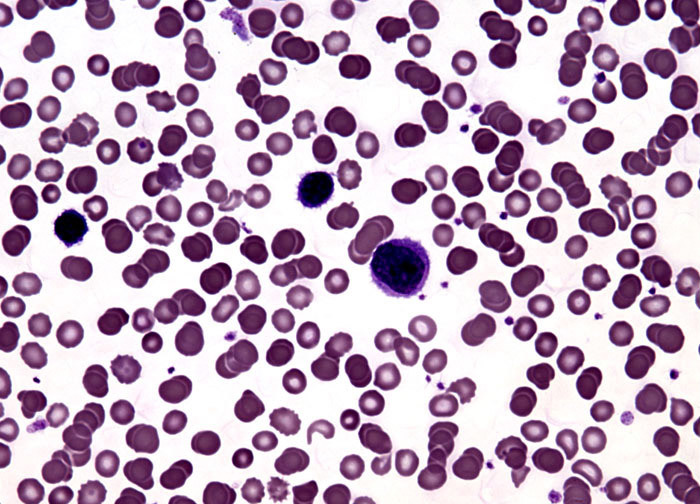
Chronic Lymphocytic Leukemia at 40x Magnification
Chronic lymphocytic leukemia is a type of leukemia that primarily affects adults over the age of 50, though the acute form of the disease is chiefly a childhood malady. The chronic form of the disease is insidious and progresses slowly, whereas acute lymphocytic leukemia leads to rapid death after its onset if left untreated. The reason for such a drastic difference in the courses the diseases take is apparently related to the cells that they affect. The acute disease involves abnormal proliferation of immature lymphocytes in the bone marrow called lymphoblasts that are unable to mature and rapidly interfere with normal blood cell production. In chronic lymphocytic leukemia, however, lymphoblasts are allowed to mature, but the number of lymphocytes produced exceeds the normal amount and other components of the blood are slowly crowded out. Also, the lymphocytes that are produced are not as adept at fending off infections as healthy lymphocytes, making patients more susceptible to a number of other conditions.













